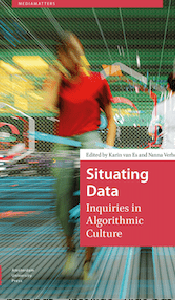AI Fairness in Practice delves into the critical issue of fairness in Artificial Intelligence (AI) systems. It explores how bias can creep into AI development and decision-making, potentially leading to discriminatory or harmful outcomes. The program equips project teams with practical tools and strategies to ensure their AI systems are fair, unbiased, and inclusive.
Recommended for:
- Developers, engineers, and data scientists working on AI projects
- Project managers and decision-makers responsible for AI implementation
- Policymakers and regulators shaping AI governance frameworks
- Anyone interested in building and using AI systems responsibly
You will:
- Gain a comprehensive understanding of the concept of fairness in AI.
- Explore the different types of bias that can impact AI systems.
- Learn about techniques for mitigating bias in data collection, model development, and deployment.
- Develop practical skills for building fairer AI systems through responsible design and development practices.
- Discover how to measure and evaluate the fairness of AI systems.
The AI Ethics and Governance in Practice series
Here is the list of titles available in AI Ethics and Governance in Practice series:
- AI Ethics and Governance in Practice: An Introduction
- AI Sustainability in Practice
- AI Fairness in Practice
- Responsible Data Stewardship in Practice
- AI Safety in Practice
- AI Explainability in Practice
- AI Accountability in Practice
Detailed Overview
AI Fairness in Practice tackles the critical challenge of ensuring fairness in AI systems. Developed by The Alan Turing Institute, this program recognizes the potential for AI to perpetuate or amplify existing societal biases. It emphasizes the importance of proactive measures to mitigate bias and promote fair and inclusive AI development.
The program begins by defining fairness in AI as the ability of a system to make decisions that are “just, equitable, and unbiased” across all demographics and social groups. It highlights different types of bias that can impact AI systems,including:
- Data Bias: Bias present in the data used to train AI models, leading to discriminatory outcomes.
- Algorithmic Bias: Bias inherent in the design or training algorithms themselves.
- Social Bias: Reflecting existing societal biases that can be embedded in AI systems through human involvement in the development process.
The program emphasizes that addressing fairness in AI requires a multifaceted approach. It explores various techniques for mitigating bias throughout the AI lifecycle:
- Data Collection: Focusing on diverse datasets that represent the intended user population and employing fair data collection practices.
- Data Preprocessing: Identifying and mitigating biases within the data used for training AI models through techniques like data cleaning and balancing.
- Model Design and Training: Choosing algorithms and training techniques less susceptible to bias, and monitoring model performance for fairness across different demographics.
- Evaluation and Testing: Implementing rigorous testing methodologies that explicitly assess fairness alongside other performance metrics.
- Human Oversight and Explainability: Maintaining human oversight in AI decision-making processes and ensuring AI systems are explainable and transparent.
AI Fairness in Practice equips project teams with the knowledge and tools to build fairer AI systems. The program promotes a context-based and society-centered approach to understanding AI fairness. By acknowledging the potential pitfalls and implementing proactive measures, developers can ensure AI benefits all of society and avoids perpetuating discrimination.
The program concludes by acknowledging the ongoing challenges in achieving perfect fairness in AI. It emphasizes the importance of continuous monitoring, evaluation, and improvement efforts to ensure AI systems remain fair and unbiased throughout their lifecycle.
Citation and Licensing
Leslie, D., Rincón, C., Briggs, M., Perini, A., Jayadeva, S., Borda, A., Bennett, SJ. Burr, C., Aitken, M., Katell, M., Fischer, C., Wong, J., and Kherroubi Garcia, I. (2023). AI Fairness in Practice. This workbook is published by The Alan Turing Institute and is publicly available on their website: https://www.turing.ac.uk/news/publications/ai-ethics-and-governance-practice-ai-fairness-practice
Providing a hyperlink to the original source is generally considered legal, as:
- The content is already published and publicly accessible on the original website.
- This page is not reproducing or republishing the full content but only providing a link to the original source.
- This page is not modifying or altering the content in any way.







